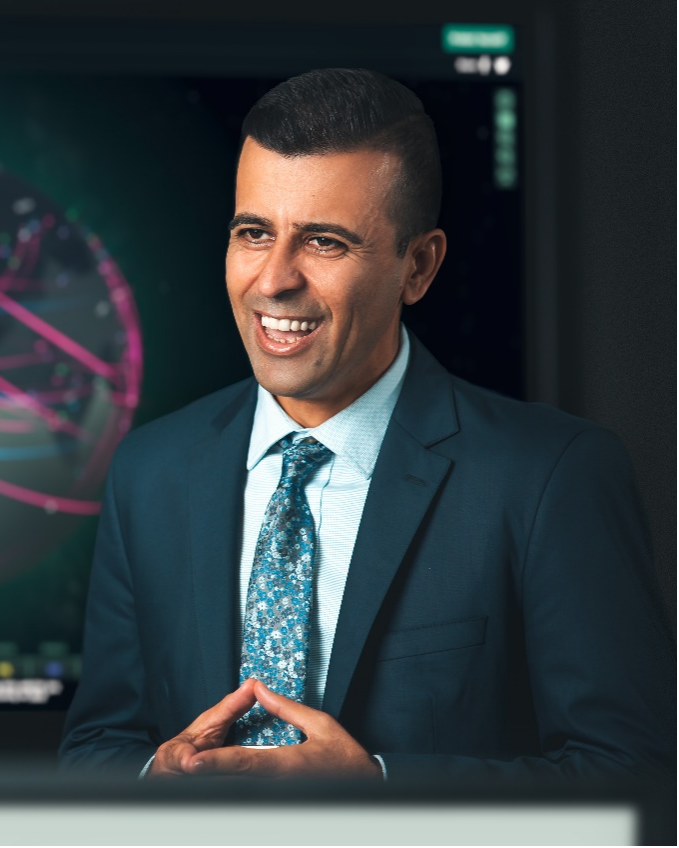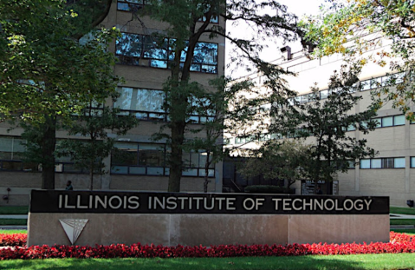Call for Papers
Background:
Machine learning (ML) has become a foundational component of modern artificial intelligence, enabling systems to learn from data and make predictions or decisions without explicit programming. At the heart of effective machine learning lies optimization—the mathematical process of minimizing or maximizing an objective function to improve model accuracy and efficiency. Whether tuning model parameters, selecting features, or training deep neural networks, optimization plays a central role in shaping the performance and scalability of ML systems. Over the years, a wide range of optimization methods—from gradient descent and stochastic algorithms to evolutionary and heuristic approaches—have emerged to address increasingly complex learning tasks. The fusion of machine learning and optimization has led to breakthroughs in various fields, including autonomous systems, bioinformatics, finance, and logistics. This symposium provides a platform to explore this intersection, promoting discussion and knowledge-sharing around innovative methodologies and applications.
Goal/Rationale:
The integration of machine learning and optimization techniques addresses a growing demand for intelligent systems capable of making data-driven decisions in real time, often under complex constraints. However, designing effective ML models remains a challenging task due to issues such as overfitting, high-dimensional search spaces, computational inefficiency, and the need for robust generalization across diverse domains. Traditional optimization methods, while powerful, often struggle to scale with the increasing complexity of modern ML models and data.
Recent advances have introduced novel hybrid approaches—such as combining metaheuristics with deep learning, leveraging Bayesian optimization for hyperparameter tuning, and applying reinforcement learning to sequential decision-making problems. These innovations have significantly improved model performance and adaptability across fields like healthcare diagnostics, supply chain optimization, and autonomous navigation.
The goal of this symposium is to bridge the gap between theoretical optimization and practical machine learning, fostering collaboration among participants to explore new research directions, share implementation strategies, and examine real-world case studies. By doing so, the symposium aims to inspire novel solutions that push the boundaries of what intelligent systems can achieve through the synergy of learning and optimization.
This symposium aspires to enhance participants’ expertise and confidence in leveraging
optimization for impactful outcomes.
Scope and Information for Participants:
This symposium focuses on the convergence of machine learning and optimization techniques, inviting contributions that explore both theoretical advancements and practical applications. Participants are encouraged to address a range of topics, including but not limited to: optimization algorithms for training machine learning models, hyperparameter tuning strategies, resource-constrained learning, feature selection and dimensionality reduction, reinforcement learning, combinatorial optimization, and evolutionary algorithms in ML. We also welcome case studies demonstrating the deployment of optimized ML models in real-world domains such as healthcare, finance, transportation, cybersecurity, and robotics. Submissions that explore emerging areas—such as federated learning, explainable AI, or optimization in deep neural architectures—are particularly encouraged. The symposium is open to researchers, practitioners, and students with an interest in bridging computational intelligence and optimization to build scalable, efficient, and intelligent systems.
Topics:
The main topics of this symposium are listed below.
Mathematical Modeling and Simulation
- Adaptive Control and Non-Linear Control
- Artificial Intelligence
- Computational Intelligence
- Design, Analysis and Applications of Optimisation Algorithms
- Deterministic, Dynamic, Stochastic, Robust and Combinatorial Optimisation Models
- High Performance Computing
- Information Science
- Intelligent Control, Neuro-control, Fuzzy Control
- Machine Learning
- Mathematical Modeling and Simulation
- Nano- and Bio- Mechanics
- Optimization Techniques
- Robotics and Automation
- Smart Structures and Health Monitoring
- Soft Computing
- Structural Optimization
- Theoretical and Empirical Studies of Computational Methods, Models and Empirical
Analysis
Meanwhile, submissions aligned with the overall conference theme are also welcome.
Mathematics and Applied Mathematics
- Algebra and Its Application
- Applied Partial Differential Equations
- Bayesian Inference
- Control Theory
- Discrete Applied Mathematics
- Fluid Dynamics
- Fuzzy Mathematics and Its Applications
- Geometry
- Image Processing
- Integral Equations
- Nonlinear Problems in Mechanics
- Numerical Analysis
- Optimization and Operational Research
- Planning and Scheduling
- Probability Theory
- Regression Analysis Estimation Theory
- Sampling Theory
- Statistics
- Stochastic Processes
Theoretical Physics
- Dynamical Systems
- Equilibrium Statistical Mechanics
- General Relativity
- Integrable Systems
- Many-body Quantum Systems and Condensed Matter Physics
- Nonequilibrium Statistical Mechanics
- Partial Differential Equations
- Probability and Random Structures
- Quantum Field Theory
- Quantum Information
- Quantum Mechanics and Spectral Theory
- String Theory and Quantum Gravity
Applied Physics
- Accelerator Physics
- Accelerator Research and Development
- Acoustics, Noise and Vibration
- Applications of Particle Trapping
- Biophysics, Medical Physics
- Detectors and Data Handling
- Engineering Physics
- Instrumentation and Control Components
- Magnetic Devices and Materials
- Materials Physics
- Mechanics, Rheology and Tribology
- Nano and Metamaterials
- Neuromorphic Computing
- Nuclear Physics
- Quantum Chromodynamics and Quantum Computers
- Spin Dynamics
- Statistical Mechanics
- Stealth Technology
- Storage Ring Physics
- Systems and Automation Thermodynamics
Prospective authors are kindly invited to submit full papers that include title, abstract, introduction, tables, figures, conclusion and references. It is unnecessary to submit an abstract in advance. Please submit your papers in English.
Each paper should be no less than 4 pages. One regular registration can cover a paper of 6 pages, and additional pages will be charged. Please format your paper well according to the conference template before submission. Paper Template Download
Please prepare your paper in both .doc/.docx and .pdf format and
submit your full paper by email with both formats attached directly to [email protected]
Publication:
Accepted papers of the symposium will be published in Conference Proceedings, and will be submitted to
EI Compendex, Conference Proceedings Citation Index (CPCI), Crossref, CNKI, Portico, Engineering Village (Inspec), Google Scholar,
and other databases for indexing. The situation may be affected by factors among databases like processing time, workflow, policy, etc.
This symposium is organized by CONF-APMM 2025 and it will independently proceed the submission and publication process.
* Please note that the publication policy may vary between different publishers. For details regarding the publication process, kindly refer to the policies of the respective publisher.

